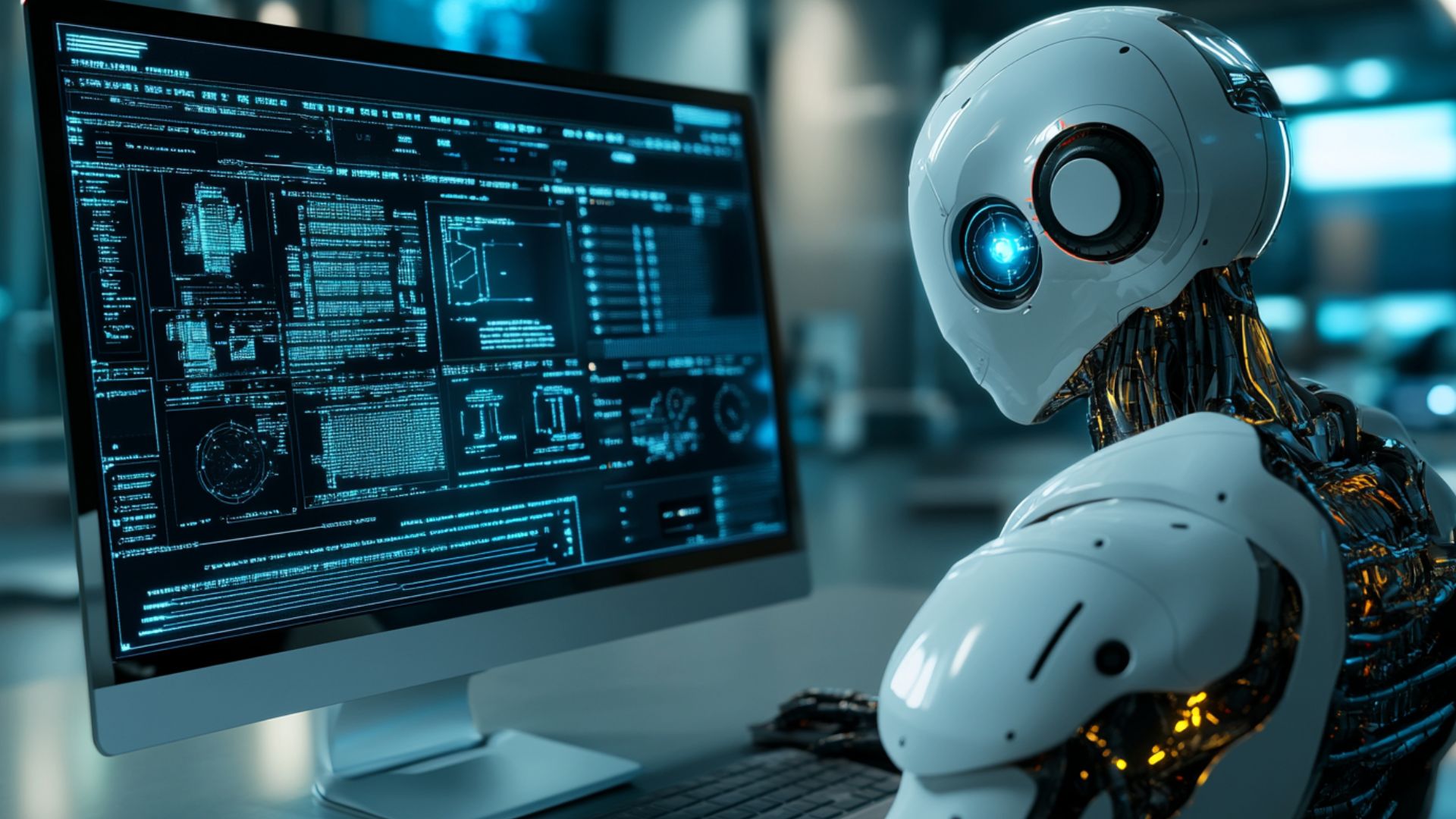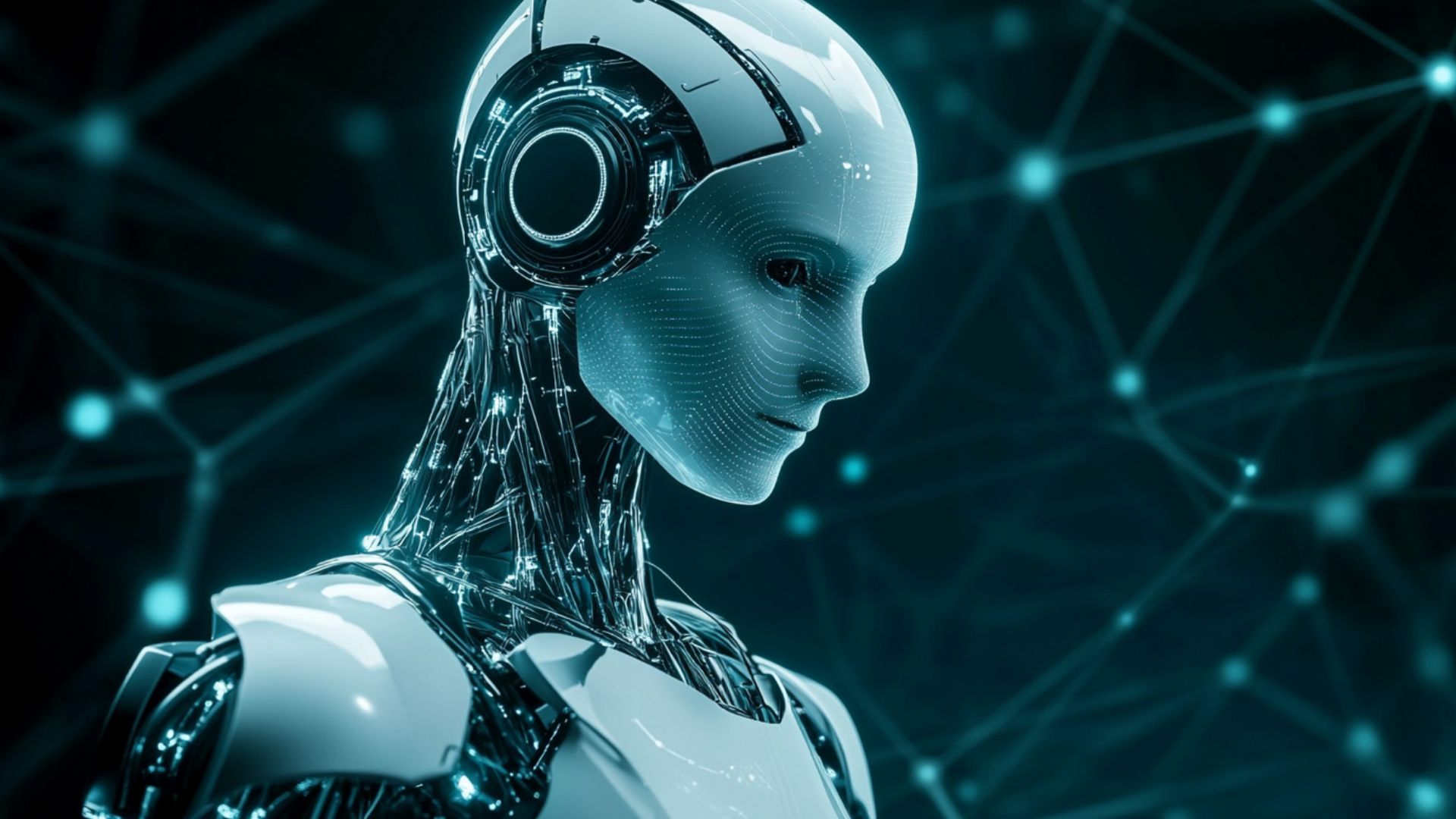The Impact of AI on Cleaning Services: Automation and Efficiency

Robotic technologies are penetrating more and more into all areas of human life. Professional cleaning is no exception. Machine learning (ML) systems provide for smart cleanliness monitoring. This is possible indoors and in the surrounding area. Integrating artificial intelligence (AI) cleaning technologies is revolutionizing the cleaning services industry. This technology is capable of performing intricate cleaning tasks. AI services are reshaping traditional practices. This shift streamlines workflows. It also enhances the overall effectiveness of cleaning operations. Such AI services allow businesses to meet the growing demands of their clients. They can do it with greater precision and speed.
Understanding the impact of AI on cleaning services is essential for companies. It helps them to improve productivity and elevate client satisfaction. Competition intensifies. So, leveraging AI-driven solutions can provide a critical edge. It optimizes resource allocation and reduces operational costs. AI tools enable businesses to offer tailored services. They meet specific client needs and foster loyalty. Such tools also enhance user experiences. Cleaning service providers must embrace these technologies. They can improve their service offerings. Let's explore all the details together.
Understanding AI Technologies in Cleaning Services
Robotic cleaning refers to the application of the latest technologies. They enhance and streamline operations in the cleaning sector. This encompasses various elements including automation, machine learning (ML), and data analytics. Automation allows for the performance of routine tasks without human intervention. ML enables systems to improve their performance over time. It analyzes data patterns. Data analytics provides insights. They help optimize cleaning processes and resource management.
Several current AI cleaning services technologies are reshaping the industry. They include:
- Robotic Cleaners: These autonomous robots can perform tasks such as vacuuming, sweeping, and mopping with minimal human oversight.
- AI Scheduling Systems: This software utilizes algorithms to optimize cleaning schedules, based on occupancy rates, peak usage times, and staff availability.
- Predictive Maintenance Tools: These cleaning assistant systems analyze equipment performance data. It predicts when maintenance is necessary. Such tools reduce downtime and costs.
- Data-Driven Management Tools: Such platforms aggregate and analyze data from various sources. They help managers make informed decisions about resource allocation and service efficiency.
- Smart Sensors: These devices monitor cleanliness levels in real-time, allowing for targeted cleaning interventions.
- Mobile Apps for Clients: Such applications enable them to manage service requests. They provide feedback and track service quality.
Cleaning service software must incorporate these technologies. They can achieve enhanced efficiency. Such technologies also improve service quality. Providers should respond more effectively to client needs. It ultimately transforms the landscape of the cleaning industry.
Key Benefits of AI in Cleaning Operations
The implementation of robotic cleaning technologies offers numerous benefits for cleaning operations. They significantly enhance efficiency and quality. Here are the advantages:
- Enhanced Efficiency: AI cleaning automates repetitive tasks, like vacuuming and surface sanitization. AI frees up human workers to focus on more complex duties. This automation leads to substantial time and cost savings. It allows cleaning companies to serve more clients. Automation also reduces labor expenses.
- Improved Accuracy and Quality: AI technologies ensure consistent cleaning results. It utilizes data-driven algorithms and intelligent sensors. These systems minimize human error. They ensure that cleaning is performed to the highest standards. For instance, cleaning software can track cleanliness metrics. It must adjust operations accordingly, maintaining optimal service quality.
- Real-Time Monitoring: AI solutions can provide real-time insights into cleaning performance. They allow for immediate adjustments and improvements.
- Predictive Analytics: This enables cleaning companies to anticipate needs and allocate resources efficiently. It further optimized operations.
These benefits position companies to enhance productivity. They improve customer satisfaction. Such advantages maintain a competitive edge in the industry.
Real-World Examples of AI Implementation
Several cleaning businesses have successfully implemented robotic cleaning solutions. They showcase the transformative impact of these technologies. Here are typical examples:
- Robotic Vacuum Systems: This commercial cleaning company utilizes robotic vacuums that equipped with AI navigation systems. Such automation allowed staff to focus on detailed cleaning tasks. These robots handled routine floor maintenance. The result was a 30% increase in operational efficiency and a reduction in cleaning time.
- AI-Driven Client Service Platforms: Another cleaning service adopted software for cleaning business. It integrates AI chatbots for client inquiries and scheduling. This system improved response times and client satisfaction. It leads to a 25% increase in client retention rates.
- Predictive Maintenance Tools: A large facility management company implemented AI-driven predictive analytics. It monitors cleaning equipment performance. This proactive approach minimizes equipment downtime and repair costs. It enhances service delivery.
These implementations boosted operational efficiency. They also resulted in overwhelmingly positive client feedback. Such innovations highlight the value of adopting the best cleaning business software. It streamlines processes and improves service quality.
AI Cleaning Software Solutions

We've prepared a list of popular AI software solutions available in the market. We compare key features like user interface, integration, and analytics capabilities. They make such tools valuable for cleaning businesses. Here are the most popular solutions:
- Cleanify: This is a user-friendly platform. Cleanify connects cleaning professionals with clients. It offers scheduling, invoicing, and customer relationship management (CRM) features.
- Jobber: This solution is designed for service-based businesses. Jobber provides job scheduling, invoicing, and customer management. This makes it an excellent choice for software for cleaning businesses.
- ZenMaid: This is typically tailored for cleaning services. ZenMaid focuses on scheduling and automation. Its user-friendly interface simplifies managing appointments and client communication.
- Housecall Pro: Such tool combines scheduling, invoicing, and client communication. Its mobile app enhances on-the-go management for cleaning businesses.
- SimplyBook.me: This is a versatile booking system. It allows cleaning businesses to manage appointments, accept online payments, and send reminders.
Now, let’s explore the comparison of features. Here are the main points:
- User Interface: Most of these best cleaning business software options boast intuitive interfaces. For example, Jobber and ZenMaid excel in ease of navigation. It ensures users can manage tasks without extensive training.
- Integrations: Integration capabilities vary. Cleanify and Housecall Pro seamlessly integrate with payment platforms and accounting software. They enhance operational efficiency.
- Analytics Capabilities: Jobber and SimplyBook.me offer robust analytics features. They enable cleaning businesses to track performance metrics, client preferences, and financial health. ZenMaid provides basic reporting. Cleanify focuses on real-time client feedback.
Selecting the right tool cleaning service depends on specific business needs. Whether prioritizing scheduling, customer management, or analytics capabilities. Each of these solutions offers unique features tailored to enhance the efficiency of cleaning businesses.
Integration Challenges and Solutions
Let’s discuss typical challenges businesses face when integrating AI solutions. They include cost and training. We offer practical tips for overcoming these challenges. They facilitate smoother adoption of AI technologies. Here are pivotal challenges and solutions:
- Cost: Implementing AI cleaning solutions can require significant upfront investment. It may deter small businesses.
- Training: Staff may struggle to adapt to new technologies. They lead to resistance and inefficiencies.
- Data Compatibility: Existing systems might not easily integrate with new AI solutions. They complicate data migration.
- Limited Resources: Smaller businesses often lack dedicated IT support to manage integration processes.
Let’s talk about strategies for effective integration. Here are the strategies:
- Budget Planning: Allocate a specific budget for cleaning software services integration. It includes hidden costs. These are training and support.
- Training Programs: Invest in comprehensive teaching sessions for employees. They focus on hands-on practice with the new software.
- Phased Implementation: Introduce the AI solutions gradually. They allow staff to adjust while maintaining existing workflows.
- Vendor Support: Collaborate with software for guidance and resources during the transition. It will help you to ensure seamless integration.
- Feedback Loops: Establish regular review mechanisms. Identify issues early and make necessary adjustments.
Businesses should address these challenges with practical strategies. They can enhance their integration of AI technologies and optimize operational efficiency.
Future of AI in Cleaning Services
We will speculate on future trends in AI technology within the cleaning industry advancements in machine learning (ML) and automation. We will discuss how these trends may influence industry standards and client expectations. Here's what the future looks like:
- ML: Future AI solutions will leverage this technology. It will help optimize cleaning schedules based on real-time data. They improve efficiency and resource allocation.
- Robotics and Automation: Expect to see an increase in autonomous cleaning robots. They can navigate complex environments. AI cleaning robots will enhance productivity for tool cleaning service providers.
- Predictive Analytics: AI will enable predictive maintenance. It will help businesses anticipate equipment failures. They will also reduce downtime.
- Smart Sensors: Integration of IoT devices will be a pivotal step. It will allow for real-time monitoring of cleanliness and resource usage. This integration will facilitate data-driven decision-making.
These trends will significantly influence cleaning business automation. They will set new industry standards for efficiency and service quality. AI technologies become more prevalent. Client expectations will shift towards demand. This is pivotal for faster response times, personalized services, and seamless communication.
Incorporating AI will enhance operational capabilities. It will also elevate customer satisfaction. They will expect their service providers to deliver data-driven insights and proactive solutions. Businesses that embrace these advancements will likely gain a competitive edge. They will be at the top in the evolving cleaning industry.
The Economic Impact of AI on Cleaning Services

Integrating AI cleaning solutions is transforming the cleaning industry. It offers immediate and long-term financial benefits. A cost-benefit analysis reveals the potential for significant savings over time. This is despite the initial investment.
- Initial Investment: Adopting AI cleaning solutions requires a substantial upfront cost. Purchasing clean AI devices can be expensive. There may be costs associated with training staff. It will operate and maintain these new technologies.
- Enhanced Service Efficiency: AI-powered cleaners work continuously and consistently. It leads to improved service quality. These machines can cover large areas efficiently. They reduce the time needed for cleaning tasks. AI machines ensure a higher standard of cleanliness. This efficiency translates into better client satisfaction. It also causes the potential for higher service rates.
- Long-Term Financial Benefits: The cleaning assistant role is typically handled by human labor. It can be augmented or replaced by AI-powered machines. Over time, this leads to lower operational costs. AI cleaning devices do not require salaries, benefits, or breaks. This reduction in labor costs significantly improves profitability.
- Return on Investment (ROI): The initial investment in AI cleaning technologies yields a positive one. It happens within a few years. Businesses can achieve higher profit margins. They must cut labor costs, improve efficiency, and minimize human error. This makes AI cleaning solutions a cost-effective option in the long run. It is despite the upfront expenses.
The initial costs of implementing clean AI may seem high. The long-term financial benefits, increased efficiency, and positive.
Conclusion: The Future Landscape of Cleaning Services with AI
Integrating AI solutions offers substantial benefits. They include reduced labor costs and enhanced service efficiency. Another key advantage is a positive return on investment. These technologies continue to evolve, reshaping the cleaning industry. Benefits allow businesses to deliver higher-quality services at lower operational costs. Cleaning service providers should embrace AI cleaning technologies. They will stay competitive and meet growing market demands. Such providers will position themselves at the forefront of innovation. They ensure long-term profitability and customer satisfaction. Now is the time to invest in the future of cleaning. Follow Newo.ai for updates on the


